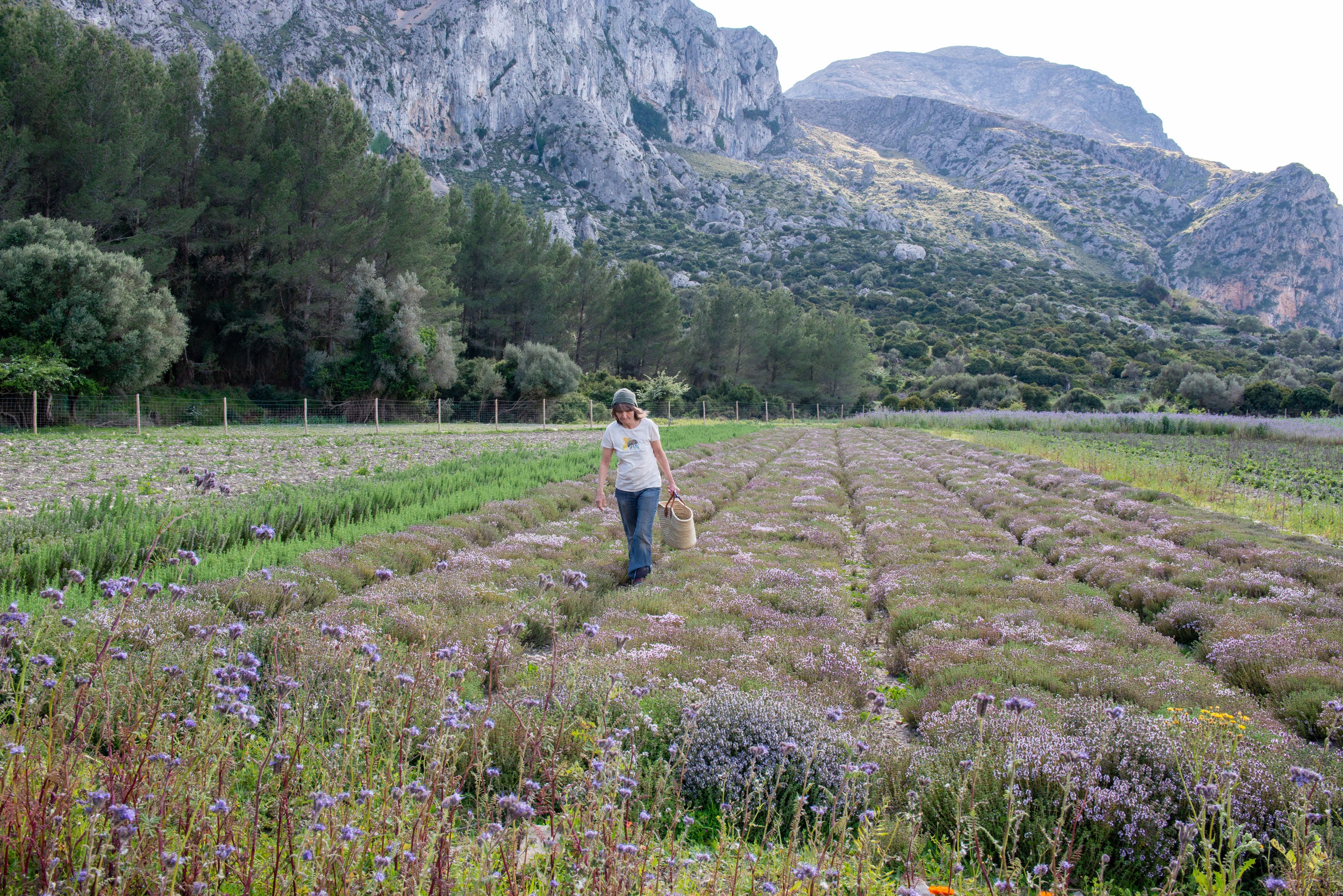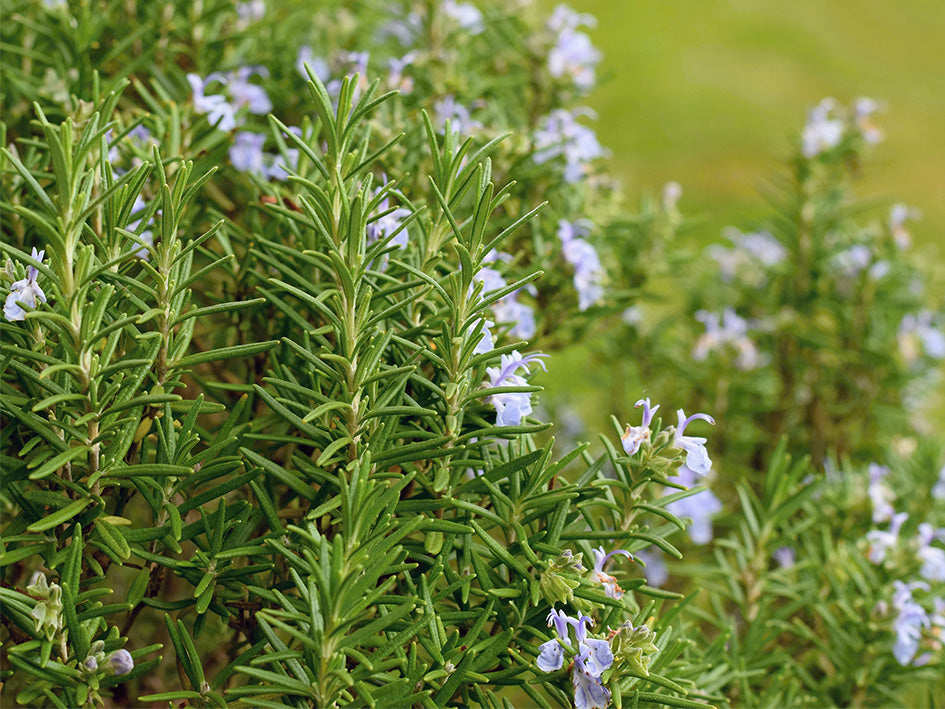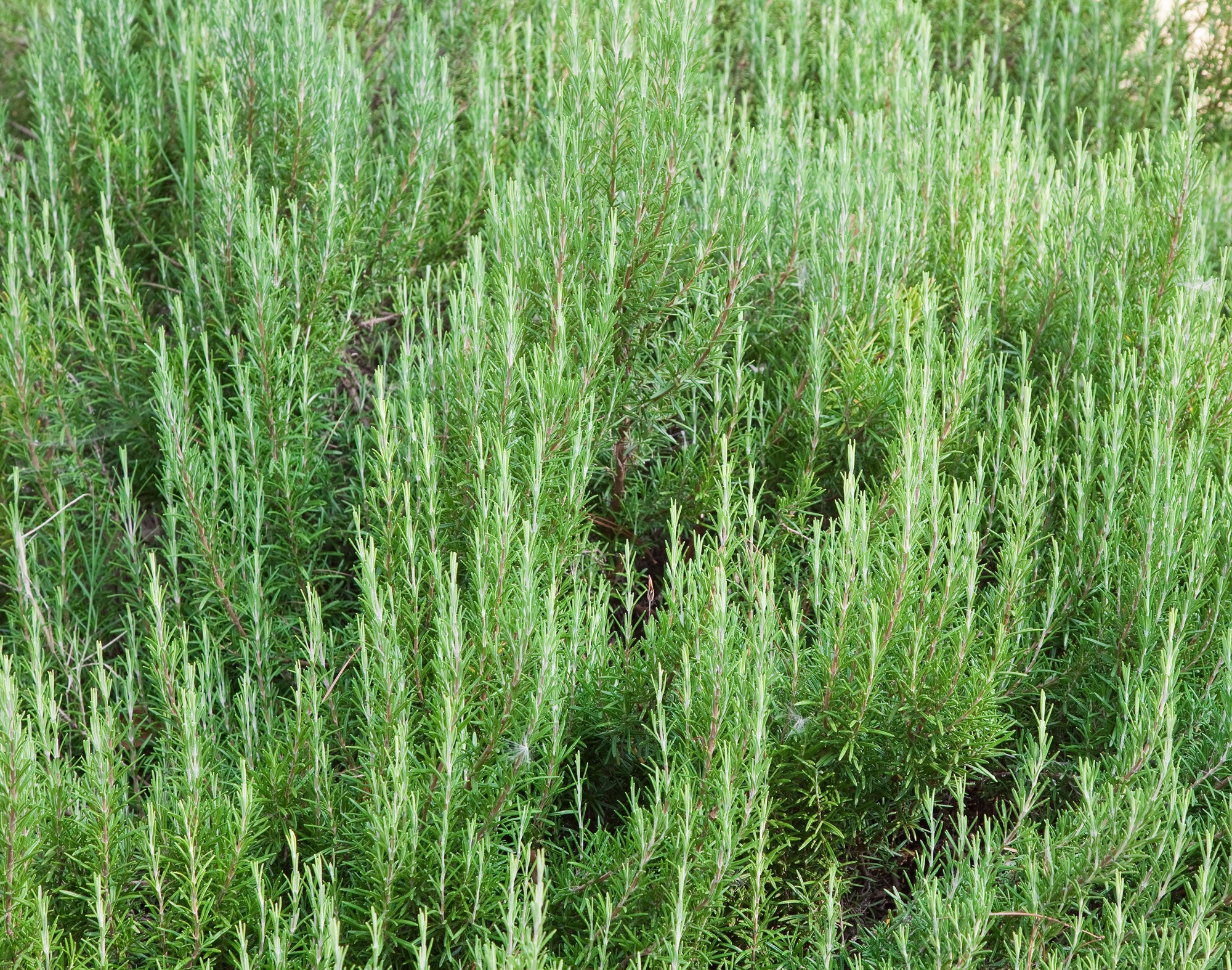
Rosemary - power and healing
Rosemary, is an evergreen herb native to the Mediterranean regions and has been used in folk medicine and cooking for centuries. With its pleasant fragrance and health benefits, rosemary has a long tradition in many cultures. In this article we will take a closer look at Rosmarinus officinalis and learn more about its origin, uses, ingredients and health benefits.
Dew of the sea
Rosemary has been known for centuries in various cultures. Originally, rosemary was native to the Mediterranean regions, especially the coastal areas of the Mediterranean, including southern Europe, North Africa and parts of the Middle East.
The name "rosemary" comes from Latin and means "dew of the sea", indicating its origin in coastal areas.
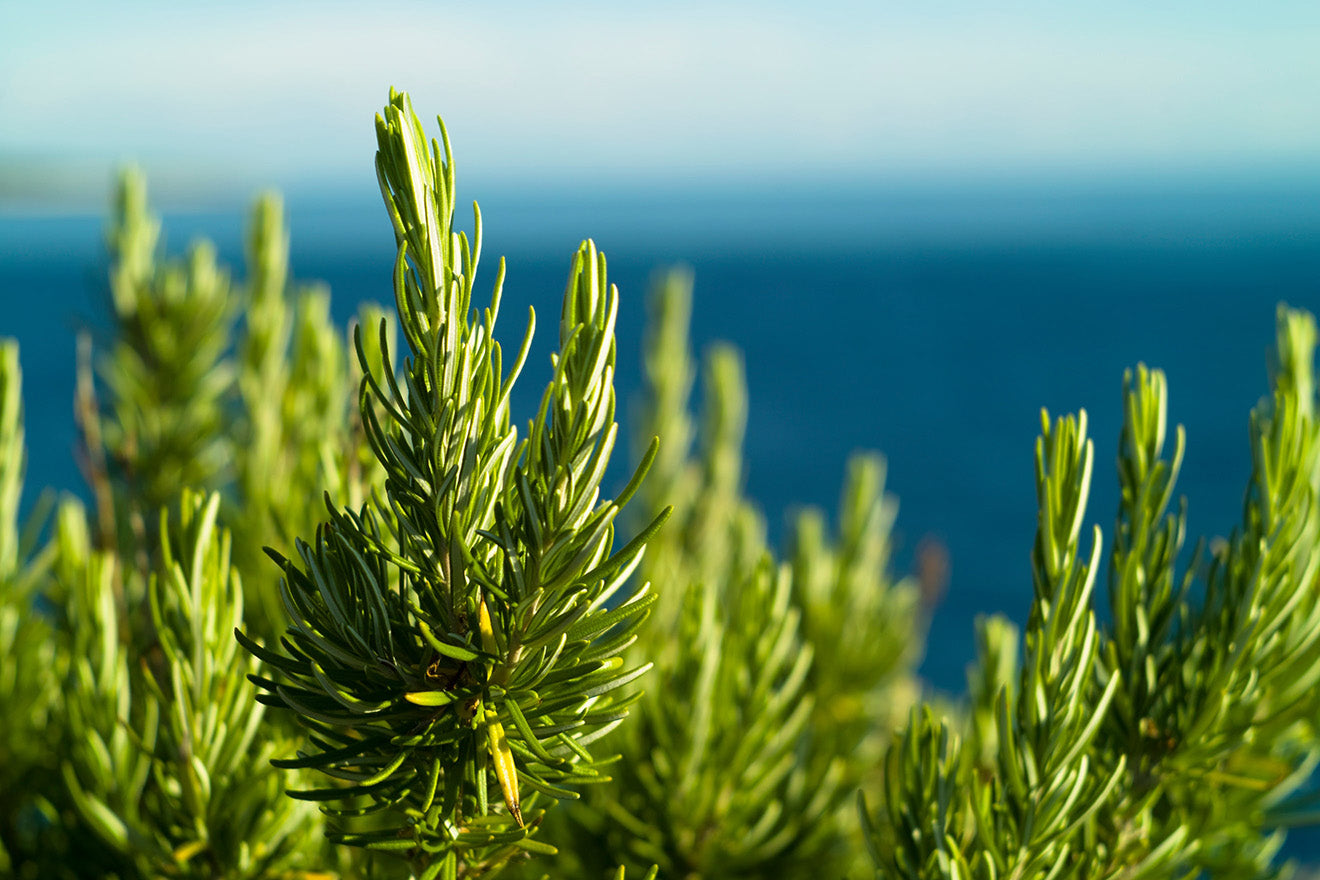
From ancient healing traditions to modern folk medicine
The use of rosemary dates back to ancient times. The ancient Egyptians used rosemary in embalming their dead, while the Greeks and Romans used rosemary as a medicinal plant and also in religious rites. In ancient Greece, rosemary was believed to strengthen memory, so it was often used in learning and examination rituals. In ancient Rome, rosemary was considered a symbol of love, fidelity and memory and was a popular herb at weddings and funerals.
In the Middle Ages, rosemary was valued for its supposed protection against evil spirits and diseases, as well as its antiseptic properties. It was carried in herbal bouquets and sachets and used in homes and hospitals to purify the air. Rosemary was also a popular herb with herb witches and was often used in magical and ritual practices.
Over time, rosemary has been used in folk medicine for various healing purposes. It was known that rosemary has anti-inflammatory, antioxidant, digestive and mood-enhancing properties.
In Mallorcan folk medicine, rosemary has been used for generations for its health benefits. It is used as a tea or infusion to improve digestion or relieve headaches. In the form of essential oil it is used for massages or inhalation.
In Mallorcan culture, rosemary has a permanent place in religious processions and ceremonies, especially during the celebrations in honor of Sant Antoni, the patron saint of animals. During the Sant Antoni festivities, rosemary branches are blessed and given to animals to protect them from disease and misfortune.
The rosemary is also present in some rondallas Mallorquinas . The most famous is "La Flor Romanial", in which the miraculous healing power of rosemary is impressively described.
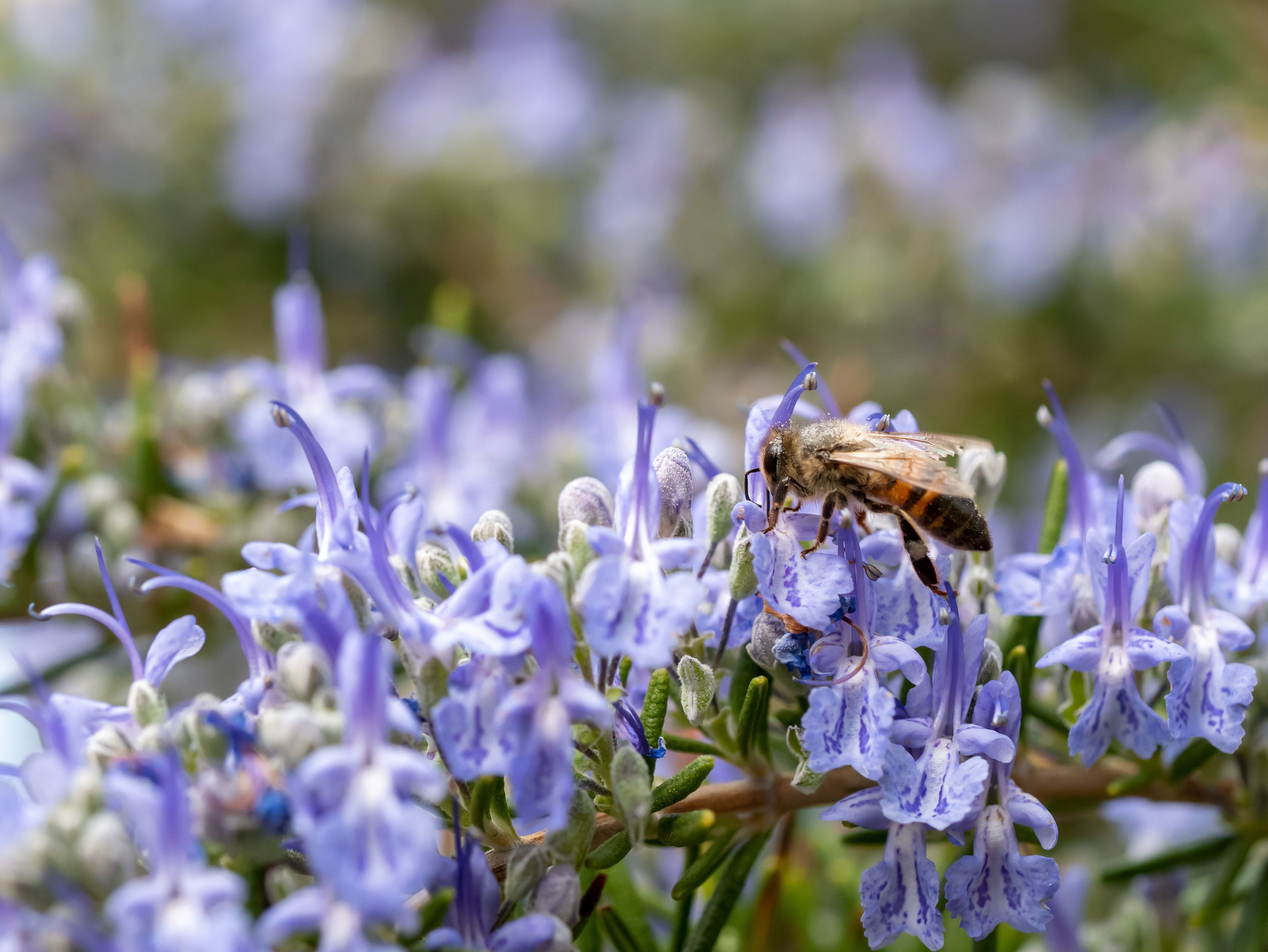
Rosemary in medicine
Rosemary (Rosmarinus officinalis) is now widely used throughout the world as a spice, medicinal herb and essential oil. Here are some of the most common uses of rosemary in medicine:
Indigestion: Rosemary is used to relieve digestive complaints such as stomach cramps, indigestion, flatulence and nausea.
Memory and Concentration: Rosemary is popular for promoting memory and concentration, as it is believed that the essential oils in rosemary can improve blood flow to the brain and support memory.
Antioxidant effect: Rosemary contains various antioxidant compounds such as flavonoids and phenolic acids, which can act as powerful antioxidants. The antioxidant properties of rosemary can help reduce cell damage caused by free radicals and thus fight premature aging and various diseases.
Anti-inflammatory effect: Rosemary is popular for its anti-inflammatory properties. It is believed that rosemary inhibits pro-inflammatory enzymes and thus reduces inflammatory processes in the body. Rosemary is also used externally to relieve inflammation of the skin or joints.
Immunostimulant action: Rosemary is used as an immunostimulant to support the body's defenses. The antioxidant and anti-inflammatory properties of rosemary help to strengthen the immune system and reduce the risk of infection.
